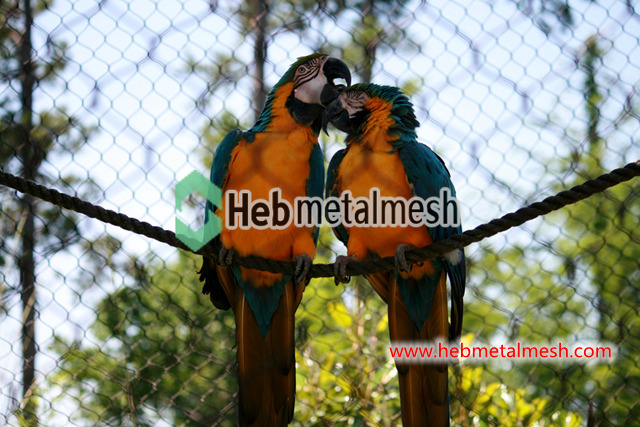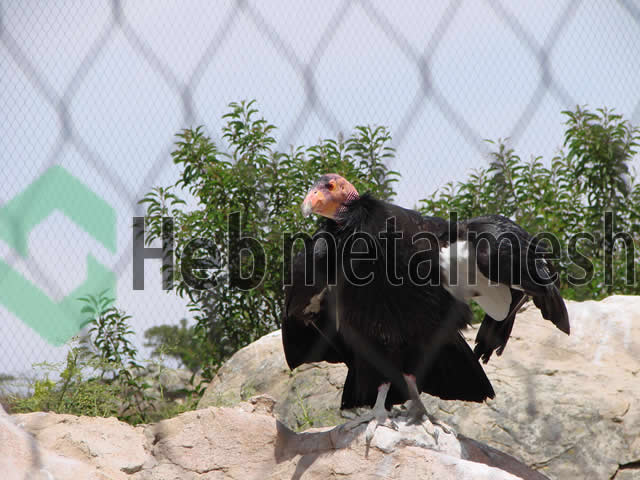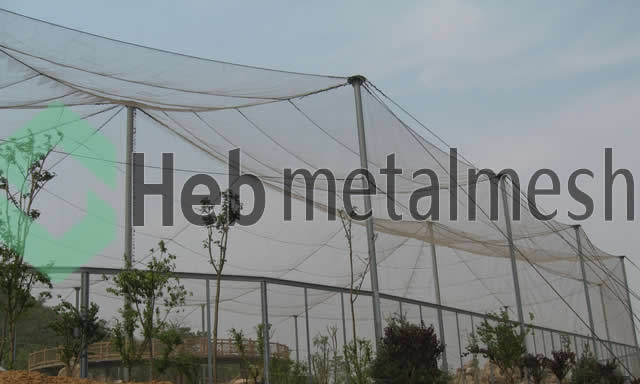Understanding Your Macaw’s Needs
Macaws, known for their vibrant colors and strong personalities, possess unique behavioral and habitat requirements that must be considered when selecting a cage for macaw. These intelligent birds are naturally social creatures, often living in flocks in the wild. Therefore, it is essential to provide them with enough space not only to move around but also to engage in social behaviors, which may include playing, climbing, and interacting with other birds or humans.
The size of the cage for macaw is one of the most critical factors to take into account. Ideally, the cage should be spacious enough to allow for flight, as macaws enjoy stretching their wings and soaring. When selecting a cage, ensure that it offers ample height and width, as well as horizontal space for the bird to exercise properly. A minimum recommended size might include dimensions of at least 4 feet wide by 6 feet high to cater to their need for activity.
In addition to space, the materials used in constructing the cage also play a significant role in the well-being of macaws. Opting for a cage made of durable stainless steel ensures longevity and resistance to wear and tear, while also being safe for your pet. Many macaw owners choose stainless steel rope mesh to create safe environments, given its strength and resistance to chewing. Moreover, this material allows for better visibility and ventilation, which is crucial for the health of these large birds.
Finally, mental stimulation is vital for the cognitive health of macaws. Integrating varied perches, toys, and climbing spaces within the cage setting can greatly enhance their quality of life. By understanding the specific needs of macaws regarding space, materials, and enrichment, you can select the perfect cage to support their overall well-being and happiness.
Understanding the Ideal Cage Dimensions for Macaws
When selecting a cage for your macaw, understanding the appropriate dimensions is crucial for ensuring the bird’s well-being. Macaws are among the largest and most active parrots, requiring ample space to move, stretch, and engage in natural behaviors. The ideal cage should accommodate not only the bird’s size but also its need for exercise and stimulation.
For macaws, a minimum cage height of 5 to 6 feet is recommended, as this height allows the bird to extend its wings fully without restriction. In addition, a width of at least 3 to 4 feet is essential to enable the macaw to navigate the cage comfortably. The depth should also be considered, as a minimum of 3 feet is ideal to ensure adequate space for climbing and exploring. Overall, a cage for macaw should ideally offer dimensions that exceed these minimums, creating an environment that mimics the bird’s natural habitat.
The activity level and wingspan of macaws must also be taken into account when considering cage dimensions. A larger cage not only permits flight but also encourages physical activity, which is vital for the bird’s health. Additionally, if your macaw has a tendency to fly around the home, providing a larger cage can help ease the transition. When measuring available space for the cage within your home, consider not just the floor area but also vertical space, as macaws appreciate climbing opportunities. The use of stainless steel rope mesh in the cage design can enhance durability while providing safety for the bird.
Overall, when choosing a cage for your macaw, prioritizing minimum dimensions while striving for larger sizes will significantly contribute to your bird’s happiness and health. By carefully assessing both your macaw’s requirements and your home’s layout, you can create an enriching environment tailored to sustain an active, healthy lifestyle.
Choosing the Right Material
When selecting the ideal cage for macaw, the material of construction is a critical factor that can significantly influence the safety, durability, and comfort of your pet. Several types of materials are commonly used in bird cages, each with distinct advantages and drawbacks.
One of the most popular and highly recommended materials is stainless steel. Cages made from stainless steel are exceptionally durable and resistant to corrosion, making them well-suited for both indoor and outdoor environments. Furthermore, stainless steel is non-toxic, ensuring a safe habitat for macaws. The strength of this material also means that it can withstand the strong beaks and enthusiastic chewing behavior of these intelligent birds, providing longevity that may justify its higher price point.
In contrast, powder-coated metal cages are another viable choice for macaw owners. These cages are typically less expensive and available in various colors and styles. The powder coating adds an extra layer of protection against rust and wear, although the durability may not match that of stainless steel. Additionally, it is essential to ensure that the coating is non-toxic and does not chip easily, as ingested paint particles can be harmful to birds.
Wooden cages, while aesthetically pleasing and providing a natural look, are generally not recommended for macaws due to their propensity to chew. Wood can become damaged and harbor bacteria if not properly maintained, making it less favorable when considering hygiene and safety. Furthermore, wooden cages often require more upkeep, as regular treatments may be necessary to withstand chewing and prevent rot.
Ultimately, when choosing the right material for a cage for macaw, it is crucial to balance factors such as safety, wear resistance, maintenance, and cost. Stainless steel cages offer the best long-term investment for many owners, while powder-coated options provide a more budget-friendly alternative. Regardless of the material you choose, ensuring that it meets safety standards is paramount for the well-being of your macaw.
Cage Layout and Design Features
When selecting a cage for macaw, attention to the internal layout and design features is paramount to ensure the well-being of these intelligent birds. The cage should offer a spacious environment that facilitates movement and exploration, considering macaws’ natural behaviors. It is essential to incorporate various perches at different heights and materials; opting for natural wood varieties can mimic their wild habitat and promote healthy foot development.
In addition to perches, strategically placed food and water dishes are crucial. These should be easily accessible yet positioned in such a way that encourages the macaw to move around the cage. Consider using stainless steel rope mesh to create shelf placements or hanging points for food and water bowls that can withstand the macaw’s curiosity and strength. This not only introduces practical feeding solutions but also contributes to the excitement of their environment.
Toys are indispensable components of a well-designed cage layout. Macaws thrive on mental stimulation and physical exercise; hence, including a variety of toys, such as chewable items, swinging accessories, and climbing structures, can keep them engaged. The cage design should allow for integrating various toys and reconfiguring them periodically to maintain interest. Additionally, incorporating layers, such as platforms and ramps, can further promote climbing and exploration, which mirrors their natural activities in the wild.
Ensuring that there is enough open space within the cage is also vital. A larger cage for macaw equipped with safe, secure barriers allows them to stretch their wings and move freely, reducing the likelihood of stress and boredom. Furthermore, employing a thoughtful arrangement of the cage’s features can optimize the use of space, creating a safe and interactive habitat that meets the physical and psychological needs of your macaw.
Safety Considerations When Selecting a Cage
When it comes to selecting a cage for your macaw, safety should be the foremost consideration. Macaws are intelligent and curious birds, which means they can be prone to accidents if their environment is not adequately considered. One of the critical factors in ensuring safety is the spacing between the bars of the cage. The bar spacing should be appropriate for the size of your macaw; usually between 1.5 to 2 inches. If the spacing is too wide, your macaw could potentially escape or get stuck, leading to injury.
Equally important is the examination of the cage for sharp edges. The construction of the cage should be free of any potentially hazardous components, such as sharp metal edges or protrusions that could slice or injure your pet. A stainless steel cage for macaw, for example, is advantageous as it not only offers a durable structure but often comes with smoother, safer finishes. Furthermore, it is crucial that any cage has a design that prevents the macaw from becoming entangled in any mechanisms, which could lead to harm.
Moreover, the materials used in constructing the cage must be non-toxic. Certain types of metal coatings can be harmful if ingested, and wooden components may not withstand the chewing habits of macaws. When considering a cage, always opt for one made from non-toxic, bird-safe materials, and ensure that any paints or finishes are safe and free from lead and other harmful substances. In this way, you can provide a secure environment for your macaw to thrive.
Portability and Ease of Cleaning
When selecting the ideal cage for macaw, two critical factors to consider are portability and ease of cleaning. Given the size and vibrant energy of macaws, it is essential to choose a cage that not only meets their spatial needs but can also be easily relocated for cleaning or during the setup of your space. A lightweight, mobile cage design often features wheels or a foldable frame, facilitating effortless transportation. This is particularly important if you plan to take your macaw outdoors for sunshine and fresh air, or need to move the cage for cleaning purposes.
Furthermore, the material of the cage plays a significant role in its portability. For instance, cages made with stainless steel provide robustness while still being lightweight compared to many other materials. This quality is compounded by the fact that stainless steel is also easy to clean, helping to maintain a hygienic environment for your beloved macaw.
Cleaning a macaw’s cage regularly is crucial for the health of your feathered friend; therefore, opt for configurations that allow for easy access to all areas. Cages with removable trays or those that have large access doors simplify the cleaning process, ensuring that waste and debris can be swiftly removed. Additionally, consider purchasing cages with stainless steel rope mesh, as this can deter pets from chewing and make it easier to wipe down surfaces.
Moreover, if your chosen cage is equipped with multiple access points, you not only enhance the convenience of cleaning but also improve interaction with your pet. A well-designed cage for macaw that prioritizes both portability and ease of cleaning ensures a comfortable living space, while allowing you to maintain optimal hygiene effortlessly.
Popular Cage Brands and Recommendations
When selecting a cage for macaw, several reputable brands stand out in the market, each offering unique features that cater to the needs of these magnificent birds. Among the most popular brands are King’s Cages, A&E Cage Company, and Prevue Pet Products. These manufacturers are known for their high-quality construction, spacious designs, and bird-safe materials, making them suitable choices for enthusiastic macaw owners.
King’s Cages has long been a favorite among bird owners due to their robust stainless steel rope mesh construction, which ensures durability while providing ample ventilation and visibility. Their models often come equipped with numerous perches and play areas, allowing macaws to exercise and engage with their environment. The wide door openings are a significant highlight, facilitating easy access for cleaning and interaction with your pet.
A&E Cage Company offers a diverse range of options, prioritizing both functionality and style. Their cages are commendably designed for easy assembly and come in various sizes, which is essential for accommodating larger macaw breeds. Many of their models incorporate a stainless steel bottom grate for easy cleaning while also providing an added layer of safety. The bar spacing is also thoughtfully designed to prevent escapes, which is crucial for ensuring your macaw’s safety.
Prevue Pet Products is another brand renowned for its commitment to a bird-friendly environment. Their cages typically feature spacious layouts and are crafted from non-toxic materials. Macaw owners frequently praise their designs for having multiple entrances, making it easier for birds to enter and exit. In comparison, all these brands emphasize safety and durability, making any of them a sound investment for a macaw’s long-term habitat.
Ultimately, the selection of a cage for macaw should reflect personal preferences regarding space, accessibility, and style. Choosing a well-reviewed brand not only guarantees a safe space for your bird but also contributes to its overall well-being and happiness.
Budgeting: What You Can Expect to Spend
When considering the purchase of a cage for your macaw, it is essential to budget accordingly, as costs can vary significantly based on several factors. A high-quality cage designed specifically for macaws typically ranges from $300 to over $1,000. The price largely depends on materials, size, and additional features. For instance, cages constructed from durable stainless steel are generally more expensive than those made from lower-grade materials. However, the investment in a stainless steel cage for macaw is often justified by its longevity and resistance to wear and tear.
Size is another critical factor influencing the price of a cage. Macaws are large birds that require ample space to move, play, and perch comfortably. As the size of the cage increases, so does the cost. It’s essential to consider the ideal dimensions for your macaw, as inadequate space can lead to health issues. Alongside size and material, additional features such as multiple access doors, removable trays for easy cleaning, and built-in play areas can also affect the total price. Therefore, weighing the essential functionalities against your budget is crucial in making an informed decision.
To ensure you acquire a cage that is both high-quality and affordable, conduct thorough research and compare options. Look for sales, discounts, or reputable retailers offering warranties on their products to secure a safeguard against any defects. Online reviews can be invaluable in gauging the durability and functionality of a cage for macaw. Ultimately, aiming for a balance between cost and quality is key, as investing in a well-made cage can enhance your macaw’s quality of life and ensure their safety for years to come.
Final Tips for Cage Selection and Setup
Choosing the perfect cage for your macaw involves thoughtful consideration of several factors that will ensure a comfortable and safe home for your pet. One of the essential tips is to ensure the cage is spacious enough to allow your macaw to spread its wings fully and move around comfortably. A minimum size of 36 inches wide and 48 inches high is recommended for medium-sized macaws, while the larger varieties require even bigger cages. The bar spacing is another crucial factor; it should be no more than 1 inch to prevent escape or injury.
Once you have selected the appropriate cage, the next step is ensuring it is made from non-toxic materials. Stainless steel cages are highly recommended due to their durability and ease of cleaning. Additionally, consider investing in stainless steel rope mesh for added security, as its design allows for visibility and airflow while safeguarding against potential escapes.
When setting up the cage, it is important to include multiple perches at varying heights to encourage climbing and activity. These can be constructed from natural wood to provide a more engaging environment. Furthermore, adding toys, swings, and foraging elements will promote mental stimulation and play, which are essential for a macaw’s emotional well-being.
Ensure the cage is placed in a location that provides ample natural light but protects from extreme temperature fluctuations or direct drafts. Regularly clean the cage to maintain hygiene and prevent illness. Transitioning your macaw to a new cage can be made smoother by introducing it gradually, ensuring that familiar items are included to help ease anxiety. By following these guidelines, you can create a welcoming environment that meets your macaw’s needs.


